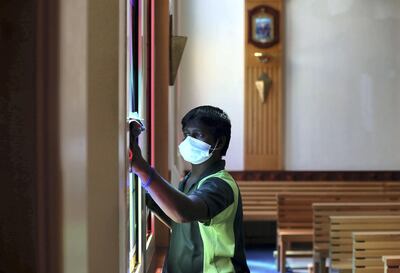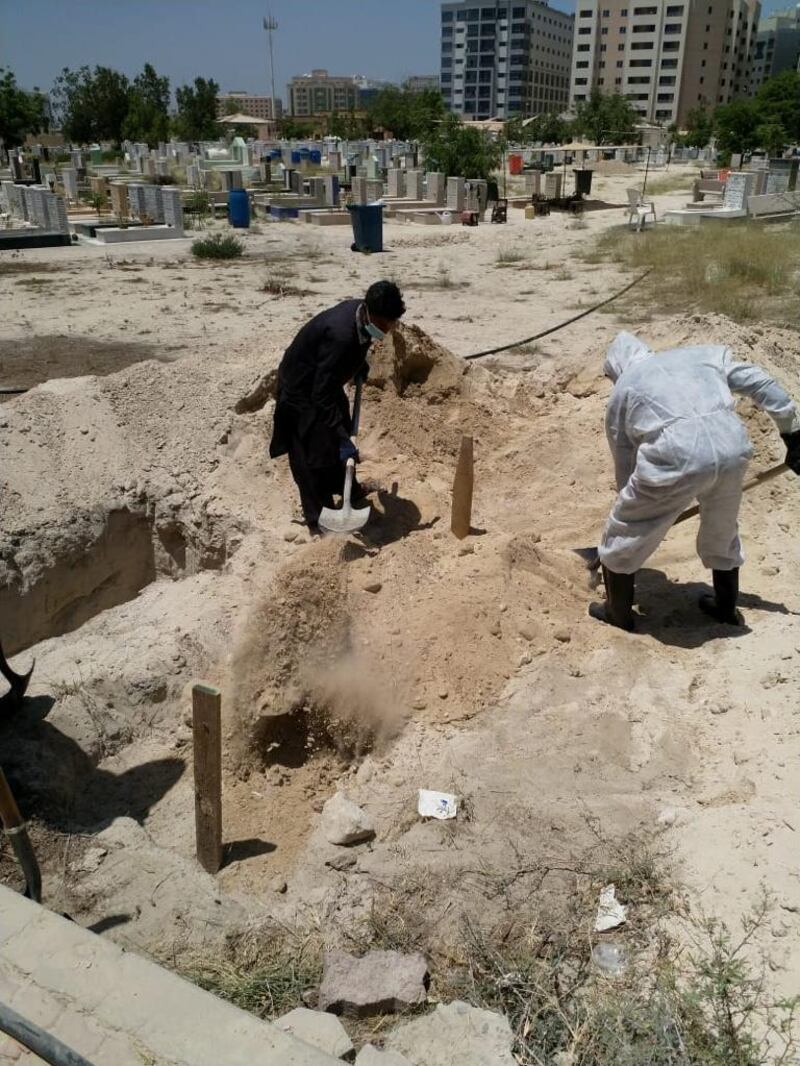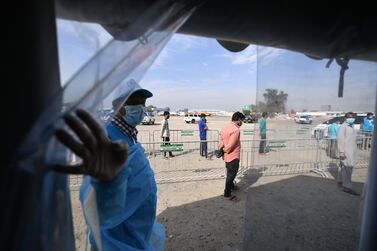Over the past two months, all places of worship across the UAE have been closed as part of efforts to stop the spread of the coronavirus.
But while the doors of mosques, churches and temples remain shut, religious leaders have continued to provide their congregations with a critical service.
Ensuring the deceased are given their final rites remains an essential task, despite the pandemic and the resulting social disruption.
But with guidance from local authorities, religious communities in the emirates have been quick to adapt to new ways of burying their loved ones.
Muslim burials
Changes to last rites are difficult but necessary for the country’s Muslim population.
Rehan Ali, who conducts funerals across the UAE, said new procedures had been established since the pandemic began.
From the hospital to the cemetery, he said strict “mandatory precautionary guidelines” had been put in place to prevent the spread of the disease.
One of the biggest changes is that washing the body before the burial is no longer allowed.
This is usually an essential Islamic final rite known as ghusl.
“Since the pandemic so much has changed around us,” Mr Ali said. “The way we hold the last rites of our deceased has been affected in a big way as well.
“We can leave out the washing if we foresee uncontrolled contamination and harm to those who undertake the task.”
Mr Ali said observing social distancing during the burial was very important.
Only two to three people were allowed to be present during shrouding, where the body is wrapped in a cloth, and funeral prayers are limited to seven family members.
“The most difficult aspect of all this is not being physically close to the deceased person’s family in their time of crisis,” Mr Ali said.
“There is always a chance that a family member may have the infection and we simply can’t take any chances.
“From what I’ve seen, most people make sure to follow strict social-distancing procedures whether it’s at the hospital or in the graveyard.”
Christian burials
Father Reinhold Sahner, the parish priest of St Francis of Assisi Catholic Church in Jebel Ali, described how burials had changed for his congregation.
Fr Sahner said that since the pandemic, fewer family members or close friends of the deceased were allowed to attend funerals.
“Under usual circumstances, a funeral Mass would be held at the church before the coffin is taken to the cemetery,” he said.
“Now it's mostly the closest family members or friends and it’s only a small group, just five to 10 people, definitely not more than 10.”
Fr Sahner said loved ones were advised to perform some prayers at home themselves.
“This is possible because a funeral is not a sacrament and can be done by anybody, not only a priest,” he said.
“They light a candle at home and say a prayer – in that way they’re there in spirit with their loved one who has passed away.”
Father Reinhold said funerals were generally kept shorter.
“We try our best not to recite long prayers or prolong the singing,” he said.
Father Reinhold said families of those who had died had been entirely understanding of the new restrictions.
“Everyone is very co-operative, no one is complaining and everybody knows it is an exceptional situation,” he said.
“People are also conscious that they may catch the virus themselves.”
E-condolences
Mr Ali said modern video technology was helping relatives to grieve.
He said the burial of a community member who had died this week in Ras Al Khaimah was attended by only a handful of people, but that a video app allowed many more to watch online.
He said that in an attempt to improvise, he had streamed the burial live through a Zoom link, which was circulated on WhatsApp and email before the event.

“This was not only appreciated by those who knew him both locally and abroad, but also by the deceased’s family, who got to bid a final farewell to their loved one,” Mr Ali said.
“In normal circumstances, hundreds of people would have been present at the cemetery to condole his family and take part in his final rites.”
Hindu cremations
The UAE’s Hindu community has also had to adapt to the new norms surrounding final rites as a result of Covid-19.
Anand Maharaj, a Hindu priest in Dubai, said all of those who died were now taken straight to cremation grounds.
“No more than four people are allowed to accompany the body when it is taken to the cremation ground,” Mr Maharaj said.
“This is usually the immediate family of the deceased person, like his or her spouse, children or siblings.”
He said cremations were typically attended by large numbers of people.
The pre-cremation Hindu ritual of the body being taken to the person’s home for family members to offer prayers and pay their last respects was no longer carried out.
“The Hindu community here in the UAE has been very positive in response to these changes,” Mr Maharaj said.
“They respect the government’s orders to stay at home as much as possible and understand why we have to avoid large gatherings."







